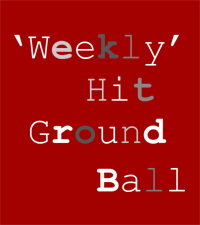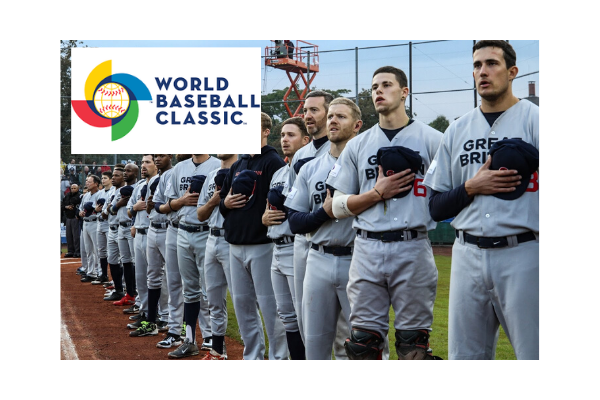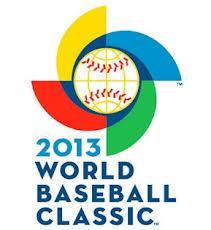 For many people, part of baseball’s charm is the way it stays the same. The sport cherishes its past; traditions are embraced and comfort is taken in the idea that the game played today is little different to that of 100 years ago.
For many people, part of baseball’s charm is the way it stays the same. The sport cherishes its past; traditions are embraced and comfort is taken in the idea that the game played today is little different to that of 100 years ago.
Yet within this nostalgic view, it shouldn’t be overlooked that we’re in the midst of a period of important change in MLB.
Last season saw the introduction of a new Wild Card round to the postseason, this year will bring season-long Interleague play with the Houston Astros moving to the AL West, and it appears that 2014 will herald the start of a new era of expanded instant replay.
ESPN.com’s Jayson Stark recently wrote about the delay in making changes to the current limited replay system and all of the complexities that are currently being debated within MLB, with a view to a new system being in place for the start of the 2014 season.
Any fan who has seen their team undone by a clearly incorrect call – all that’s every fan, despite MLB umpires largely doing a brilliant job – will be keen for baseball to finally join the ranks of most other sports by introducing instant replay in a meaningful way.
However, the belief that replay is an officiating panacea is not true. Baltimore Orioles manager Buck Showalter is quoted in Stark’s piece saying “Right now, they’re right 99 per cent of the time. But they should be able to get to 100 per cent [by using replay]”.
Sorry Buck, but you’re out of luck there.
Even with plenty of cameras at every game – and Stark’s article raises the important point that camera coverage is currently very varied in MLB ballparks – it’s impossible to get the perfect angle for every incident. That’s not always an issue, but it is in some cases and without the perfect angle you still have to rely on an element of judgement.
That judgement isn’t simply an interpretation of the rules, it can also involve how your brain interprets the images. We’ve seen it plenty of times in cricket: a super-slow-mo, zoomed-in image shows the ball coming into close proximity with the bat for a potential ‘knick’. Some will see the ball clearly deviate as it clips the edge of the bat, others will see it harmlessly passing by. Both sides are left incredulous that the other can’t see what looks indisputable to them.
So instant replay isn’t always a clear-cut way to answer every single argument and that’s an important point to keep in mind.
It still should be better than the current situation though and that’s really what most are looking for. What we want is an end to blatantly incorrect calls changing the course of a game.
The difficulty comes in implementing a system that allows the officials to target those important decisions without reviewing every marginally questionable case. MLB’s initial relationship with replay focuses on home run calls as these are key plays where a run or four is scored (or not). A close play on a runner reaching first base may be inconsequential if followed by an inning-ending double-play on the very next pitch, or it could be the precursor to a six-run rally. It’s simply not always known what will turn out to be a crucial play while the game unfolds.
Stark’s article states that managers and players are not overly keen on a ‘challenge’ system, which suggests that it will be up to the umpire’s discretion as to whether a decision is referred onto a fifth umpire or not (thankfully the farcical sight of the umpiring crew heading off the field to consult replay images in secret as everyone else twiddles their thumbs appears to be on borrowed time).
That should be a manageable system as currently it’s rare for there to be more than a couple of incidents per game that might need to be reviewed. The danger is that umpires become overly cautious and start checking decisions just to be sure, perhaps egged on by managers demanding a play to be reviewed. The only way we’ll know is to live with the system for a few years and to see how it goes.
Whatever system is introduced, you can be sure that it will not please everybody and it will not bring an end to umpiring controversy. However, the new system in 2014 doesn’t have to be – and logic tells us it won’t be – the definitive answer to using replay.
So long as it’s accepted as a search for improvement, not a search for complete perfection, a new system should have a positive affect on those who play, watch, or officiate in MLB.
Rounding the bases
It was sad weekend for baseball with Hall of Famers Stan Musial and Earl Weaver passing away. The book ’Weaver on Strategy’ is one that any British baseball fan should consider adding to their collection.
One week ago, there were three main free agents left on the market, all of them being clients of agent Scott Boras. That list is now down to two (Michael Bourn and Kyle Lohse) after Rafael Soriano agreed a two-year, $28m contract with the Washington Nationals. Boras’ strategy appears to be to wait for other players to come off the market – unless bowled over by an offer – to then leave him and his clients as a team’s only option if they want to improve via free agency. It worked with Prince Fielder last year and has worked for Soriano now, so don’t be surprised if Borne and Lohse end up with lucrative multi-year contracts too.
As for the Nationals, they followed up on strengthening their bullpen by trading Michael Morse to the Seattle Mariners in a three-club deal also involving the Oakland A’s. Morse became surplus to requirements once Adam LaRoche agreed to return to Washington on a two-year contract. The Mariners desperately needed to upgrade their offence, but their fans have some reason to feel underwhelmed by being reunited with Morse alongside the acquisitions of Raul Ibanez, Kendrys Morales and Jason Bay this offseason.
Mike Napoli’s move to the Boston Red Sox has finally been agreed, but the Red Sox’s concerns with one of Napoli’s hips has cost him a lot of money. The initial three-year, $39m contract that they had agreed early in the offseason has turned into a one-year deal guaranteeing him $5m, with a further potential $8m in incentives.
Enthusiasm for the World Baseball Classic still appears to be lukewarm in the States, but the announcement last week of provisional rosters for the event certainly caught the imagination of baseball fans in many other parts of the world. Barry Larkin, who will manage Brazil in this year’s tournament, explained the situation well in stating,“being on the other side internationally, the tournament is humongous .. there is a tremendous amount of interest and excitement. I think it’s more exciting because of the opportunity it gives the players who are not in the States”.
The highlight of the WBC roster announcements for me was looking at the talent on the Netherlands’ provisional list. Dutch Major league (Hoofdklasse) stalwarts such as pitchers Rob Cordemans and David Bergman could be joined by highly-touted prospects such as the Rangers’ Jurickson Profar, the Red Sox’s Xander Bogaerts and the Orioles’ Jonathan Schoop, as well as the Braves’ shortstop whiz Andrelton Simmons. It’s possible that not all will be on the final roster, but the Dutch will have an exciting infield even with only a couple of them joining the team.



